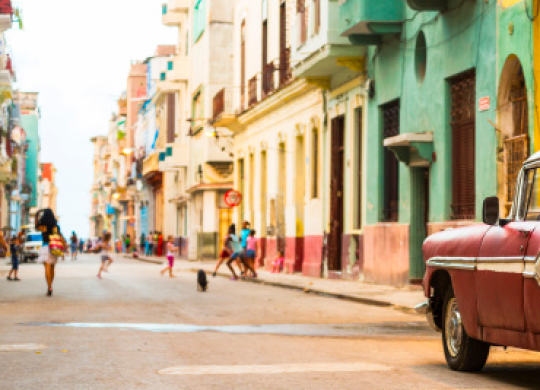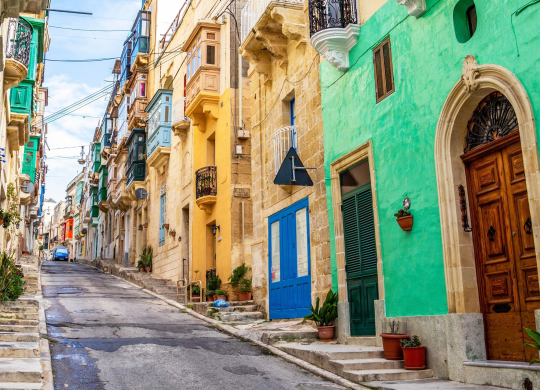Studying in Cuba for foreigners: how to enter a university and what you need to know about the conditions for obtaining education

Adorable Cuba is not only a fabulous place for tourist trips. The state, among other things, also offers an excellent, high-quality education system, and educational programs at a number of universities are considered the best in North America. Every year, thousands of foreign students go to this exotic country to get a profession and enjoy studying the local culture, history, and way of life.
Many Cuban universities open their doors to international students. Entering the country's educational institution is not too difficult, but you need to know certain rules, requirements, and nuances.
In the article, we have collected useful information about the peculiarities of studying in Cuba, conditions for foreigners, etc.
What needs to be done to come to the country for education
To obtain higher education in Cuba, you must, first of all, choose an educational institution. More than 60 state universities operate in the country today, but not all of them accept foreigners. Among the well-known and best institutions where international students can study are the following:
• The University of Havana;
• The University of Granma;
• The University of Camaguey;
• The University of Cienfuegos;
• The University of Holguin;
• The University of Pinar del Rio (UPR);
• The University of Information Sciences (UCI);
• The University of Santiago de Cuba;
• The Technological University of Havana Jose Antonio Echeverría (CUJAE).
Having chosen a suitable educational institution, it is necessary to submit an application for admission. Detailed information on admission conditions, documents, and studies can be found on the university's website or by contacting the administration directly.
In order to have the right to study at a Cuban educational institution, foreigners must obtain a student visa. As such, there is no "study visa" or its separate types. At the same time, a subcategory of the D-2 work visa is offered - for students and scientists. It is also worth preparing certificates of education, a letter of enrolment or acceptance to the university, which must be submitted together with the application to the consulate.
After obtaining a visa, you can deal with organizational issues regarding your further stay in the country: housing, finances, necessary documents, insurance, etc.
Terms
Admission to a university is usually accompanied by taking exams and passing an interview. Therefore, it is very important to prepare thoroughly and go over the necessary disciplines.
Local educational institutions welcome foreign students, but only if all requirements are met. In particular, you need to have a student visa, letters of recommendation, and take care of health insurance. It is also necessary to meet the entrance requirements, which can be asked in advance at the university.
Since most institutions teach subjects in Spanish, an important condition for applicants is language proficiency. You can master at least the basic level in advance, or take preparatory language courses on the spot.
Documents required
Usually, to obtain a student visa to Cuba, you need to submit the following documents:
• a completed application form for obtaining a Cuban study visa (you can download a sample on the website of the Cuban consulate in your country);
• valid passport;
• birth certificate;
• diploma of general secondary education;
• a certificate confirming knowledge of the Spanish language;
• a passport-size photo.
• health certificate, including the results of a blood test, X-ray, AIDS test;
• confirmation of visa fee payment.
All application documents must be either in Spanish or translated and notarized. It is necessary to provide the original and the translation. Also, the documents must be legalized by the competent authorities of your country, and then by the Cuban consulate. Be sure to check the details regarding the submission of documentation and requirements at the consulate.
Tuition fees, credits
Studying in Cuban universities is more affordable than in many other countries. The cost is usually not fixed and may differ from one university to another. It is estimated that obtaining an education at a good university will cost 20-40 thousand dollars. It is not about a year of study, but about the entire program.
You can pay both in cash and by card. It is important to clarify in advance whether the payment is intended to be in dollars or still in the national currency. It is also worth agreeing on how the payment will be made.
Opportunities for free studying
All public universities in Cuba provide free education only to their citizens. In most cases, foreign students pay for their education. Free programs may operate in certain medical universities. The information should be clarified directly at the university.
Preparatory courses
Education in Cuban universities is conducted in Spanish. Certain subjects may be available in English only in some institutions. However, knowledge of Spanish is a prerequisite for applicants.
To learn the language, it is better to use special preparatory courses offered by many universities. You can also look for language courses, but it is quite difficult to find them in the country.
Preparatory classes are conducted by highly qualified teachers who are native speakers of the language. Students master not only basic knowledge but also learning skills and complex terminology.
Education system in universities
More than 60 universities offer higher education in Cuba. The curriculum at all levels is established by the Ministry of Education.
The most popular programs in educational institutions are the following:
• accounting
• medicine and pharmaceuticals;
• agriculture;
• chemistry and physics;
• art;
• business;
• economy;
• sociology;
• biology;
• sports;
• engineering;
• finance and banking;
• law and jurisprudence;
• tourism.
As for the duration, the master's degree is two years, the bachelor's degree - five years, and the doctoral degree - three years. It is also possible to study remotely at the bachelor's level for six years.
Studying in Cuba is a great opportunity to get a quality education and explore the local culture. Universities here are not expensive and the cost of living is very affordable. At the same time, the level of knowledge provided in educational institutions is considered one of the best in North America. In addition, foreign students have the right to use free medical care.
Recommended articles
3 min
Education
4 min
Education
5 min
Education
2 min
Education
Education System in Andorra: educational structure, benefits and prospects
The education system in Andorra is an example of a multilingual and multicultural approach, combining tradition and modern international standards. Learn about the structure of education in Andorra, costs, recent reforms in the field and the benefits of studying in Andorra for international students
01 maj. 2025
More detailsAll materials and articles are owned by VisitWorld.Today and are protected by international intellectual property regulations. When using materials, approval from VisitWorld.Today is required.